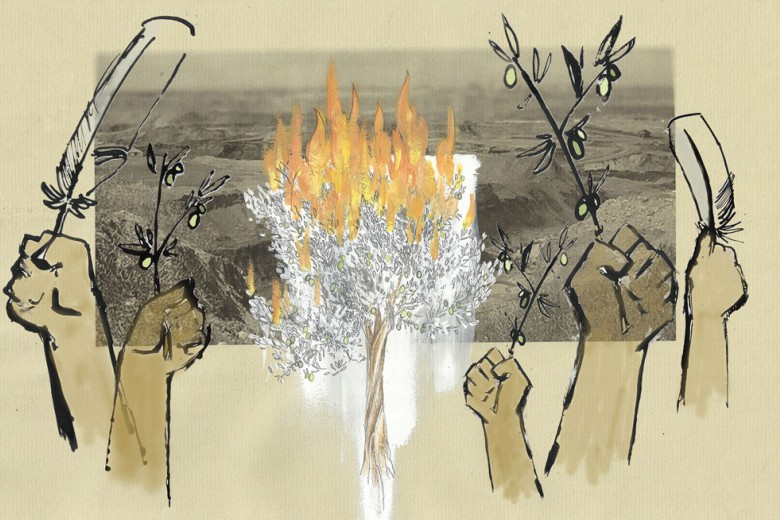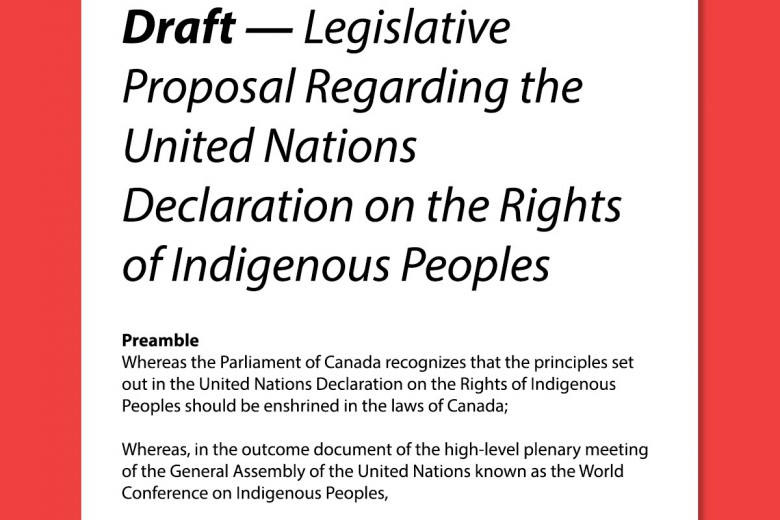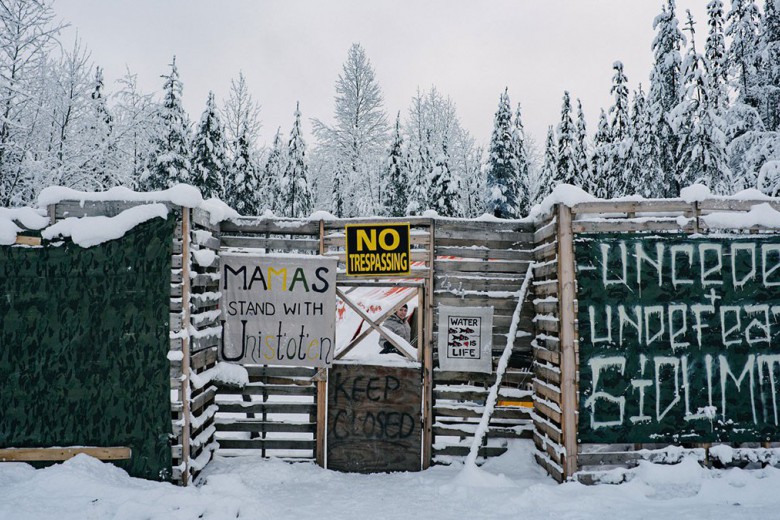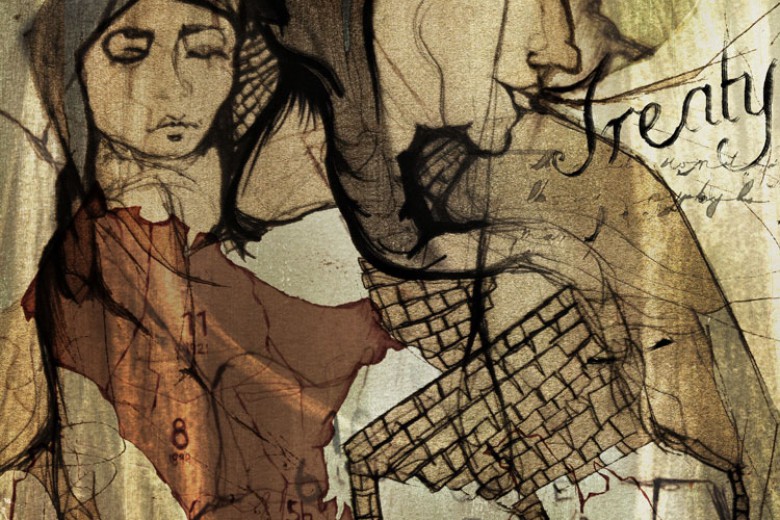
Doctor Gabor Maté is the award-winning author of the books When the Body Says No, Hold On To Your Kids, and In the Realm of Hungry Ghosts. He was recently invited to speak at a conference of the Saskatoon Tribal Council, which includes seven Saskatchewan First Nations. I took the opportunity to interview Dr. Maté about his writing and the intersection between health and politics.
Can you tell me about your new project?
I’m intending to write a book tentatively called Toxic Culture: How Capitalism Makes us Sick. That’s the working title. My contention is that the very nature of the system in which people live their lives is a significant source of illness. Now there are obvious factors like environmental pollution, toxins, and then of course there are the social determinants of health that you write about in A Healthy Society: the impact of poverty, the impact of inequality, the impact of history and continued racism. There’s an article in the Saskatoon Star Phoenix today about sentencing practices in the courts of Saskatchewan. People who are identified as Aboriginal are likely to get double the sentences of people who are not identified as Aboriginal. That’s going to have a health impact.
But I’m going to go beyond even that and say that even the people who are not on the wrong end of economic inequality or systemic racism are still made ill just by how we live our lives. The stress that we live under, the competition, the aggressiveness, the uncertainty, the loss of control that we experience in our lives. The gender inequalities, these are not just social phenomena, they have an actual impact on community health. The isolation people are experiencing.
When you think of the individuals who wind up with a double prison term, obviously that has a great impact on their own health. What’s the impact on their family’s health and the community around them?
Families are further deprived of contact and further broken. Children are further deprived of their parents. There’ve been studies in the U.S. on drug sentencing laws and what the impacts are on the children of the people who are jailed. And of course in the U.S., too, the people who are so called coloured or minority are more likely to be jailed for a longer time. There’s nothing equal about the criminal justice system that way, nor about the impact on families.
On the individual level, you can take monkeys and isolate them and then you measure their dopamine receptors and find they are reduced significantly. In other words there’s less receptor for the motivation and incentive chemicals in their brains. Then you put them back into society, those dopamine receptors can come back, unless they’re bullied and underlings in which case they don’t come back. So, the way we treat people has a physiological impact. When you stick them in jails when you treat them with isolation, when you ostracize them, you are hurting them. And furthermore, who is it that’s jailed? Dr. Bessel van der Kork, a trauma expert at Boston University, has said that 99 per cent of the people in the criminal justice system are traumatized children.
I recall hearing of a study showing that more than 95 per cent of inmates have a mental illness.
Yes, absolutely, and the basis of mental illness is trauma. And so, what you’ve got is already traumatized people being further traumatized by the jail system. We don’t have quite the horror stories that you do in the United States with the private prisons, but it’s pretty horrible in Canada.
When you think of the period of their life where people are imprisoned, that’s the period of their life where they’re kept traumatized and kept from growing. I also think of HIV in Africa where you have the death of people in their working and child-rearing years and the effect that has on communities. When you take all the young men from a community what does that do to their economic chances, for their chances to have a generation of kids that aren’t traumatized as well?
Exactly. And nearly 30 per cent of the people in jail in Canada are Aboriginal, even though they only make up 4 per cent of the population.
In Saskatchewan it’s closer to 80 per cent.
What percentage of the population of Saskatchewan is Aboriginal?
Fifteen to 20 per cent.
And they make up nearly 80 per cent of the jail population. So, why are they in jail? Because they were traumatized in the first place, individually and as a people. So they turn to drugs, for example, as a way of soothing their pain. So what do we do? We punish them. We not only punish them, we further traumatize them. Then, under the current rules, we’re going to keep them in jail longer. If we’re going to spend more money on enforcement, and jailing people, there’s less money for programs and rehab in jail. Hence we’ve got this so-called correctional system that doesn’t correct anything.
So, clearly that’s a really great example of downstream thinking; we’ve got a problem, we’re going to lock it up or respond to it in a way that’s after the fact. What would be a way to move further upstream in regard to the crime that does exist?
Well, a lot of crimes are committed because we’ve made something criminal that’s very arbitrary. There’s no criminality in possessing liquor, but there’s criminality in possessing heroin. Why? Heroin is far more benign than liquor is when it comes to health impacts over the long term. It’s not a crime to possess nicotine, or cigarettes, but it is a crime to possess cocaine. Why? I’m not recommending cocaine or heroin to anyone, I’m just saying, if you’re going to talk about health effects, neither can compare with cigarettes.
A lot of our prison population may wind up in prison for a crime in the first place, but they later return due to parole violation or failure to pay a fine, so you have administrative, process crimes, that you or I could pay our way out of with a fine or a lawyer, and they just have to do the time.
And the crimes are committed because certain drugs are illegal, and they have to pay big bucks for it, and to get the big bucks they have to commit the crime to get the money. So, first of all, we create a lot of crime, just by arbitrary decisions about what constitutes criminal behavior.
What’s the quote? “The law in its wisdom prohibits both rich and poor alike from sleeping under bridges.”
That’s right. Anatole France said that.
It prohibits the rich and poor alike from injecting cocaine.
The rich don’t have to, they can buy powdered cocaine.
Right, and nobody notices because they can do it in the safety of their own home.
Exactly. Now in the U.S., the possession of crack cocaine was punished ten times as heavily as the possession of powdered cocaine. Who used crack cocaine? Poor blacks. Who used powdered cocaine? Rich whites. The effects are the same, it doesn’t matter, the one is not worse than the other.
Then, if you look at who becomes alcoholic, who commits crimes of violence, these are people that were traumatized. And they were traumatized quite systemically and deliberately by official government policy. It wasn’t an aberration, it went on for over a hundred years, and in many ways it’s still going on.
So an upstream approach would be to put a lot of the resources and energy that now goes into law enforcement and incarceration into programs that would help young families not repeat the trauma of generations. Educational departments and health departments would have to spend a lot more money. But we would save that money downstream in economic activity, in less crime, greatly reduced health care costs, etc.. Of course, nobody thinks long term. Departments only think in terms of budgets over the fiscal year. So no bureaucrat is going to get a benefit from thinking 15 years down the road.
When I talk about Upstream, that’s the most common objection: Canadians have a four-year political cycle at most. When you look at First Nations communities they have a two-year political cycle for Indian Act chiefs and councils, which makes it even harder for them to have any longitudinal success. That’s true, but there are examples in the past of long-term thinking despite short political terms.
Medicare here in Saskatchewan is a great example. Political terms were no different, but they were thinking 50 years out. So there are problems in the electoral system, but there are also problems in the demand. What could happen for us as a society to actually create the demand for long-term thinking from our political leaders. How do we change their way of thinking by what we reward?
That’s a very idealistic question, because it assumes that political leaders are not just in theory, or not just by intention, but in actual practice there to serve the needs of the people. That’s a fair assumption, but is it true? If you actually look at the policies of political leaders over the generations, whose interests do they actually serve? Are they serving the interests of the people, or are they serving the interests of a small group of people who hold the levers of the economy. I could make a reasonable case that underneath the veneer of political democracy lies a political dictatorship: very few people in charge running the system for their own benefit. So, if that’s the case, there’s no use in hoping for leaders to be any different, because if they’re any different they won’t get elected, because the media that’s controlled by the same elite will never let them have any kind of a voice.
And even if they do get elected they’ll be hamstrung at every opportunity.
If by accident someone’s elected with a slightly different point of view they’ll be totally hamstrung, and whatever they do will be quickly reversed. So even Medicare, which is this Canadian icon, has undergone significant dismantling over the last fifteen, twenty years. And it’s not going to die by a single blow, it’s going to die by a thousand cuts, and the pressure to privatize is increasing. So when you say, how are we going to get the public to put the pressure on politicians, well the other thing is, of course, the public works with the information that’s given to them by the system. And as much as there’s the Internet and people can do any kind of research they want, most people are not motivated to do that. Most people are depoliticized, most people are resigned to leave significant decisions to their politicians.
Although in principle we have freedom of choice, without awareness and consciousness it’s not meaningful to speak about freedom of choice.
And the Internet, whether it’s the amount of information or the way it’s accessible, it may actually be causing people to remain more on the surface than actually digging into ideas.
Which means there are very few conscious people in this country. Ask the average person about any complex issue. It’s fine to have a democracy, but if you have a democracy with a fundamentally unaware population, then the people who are very aware of their interests and have the capacity to control the flow of information that reaches most people, are in an unassailable position. So then, who are these people that are going to challenge the politicians? They’re people who don’t have the information that they can challenge anybody with. And yet what is remarkable is that despite all that propagandistic control, on some significant issues people actually manage to come to some conclusions. For example, at least there seems to be a strong general understanding of climate change. But that hasn’t translated into any kind of political electoral movement. When the next election happens, we’re still going to elect people who have been supporting policies that contribute to climate change. If you poll people, yeah, climate change is an issue, but if you look at how it affects political behavior, it doesn’t affect it very much.
Part two of Ryan Meili’s interview with Gabor Maté is HERE.






